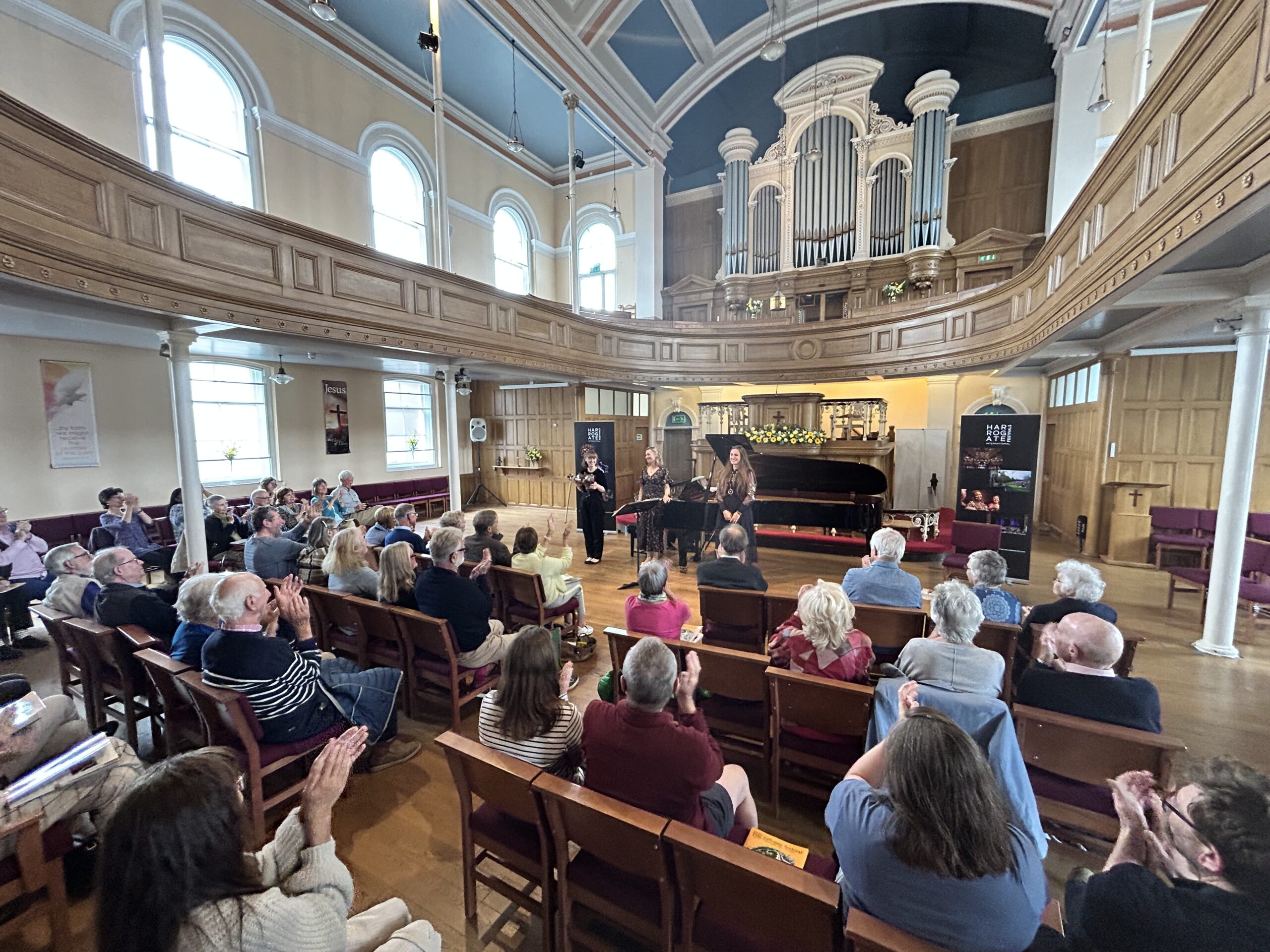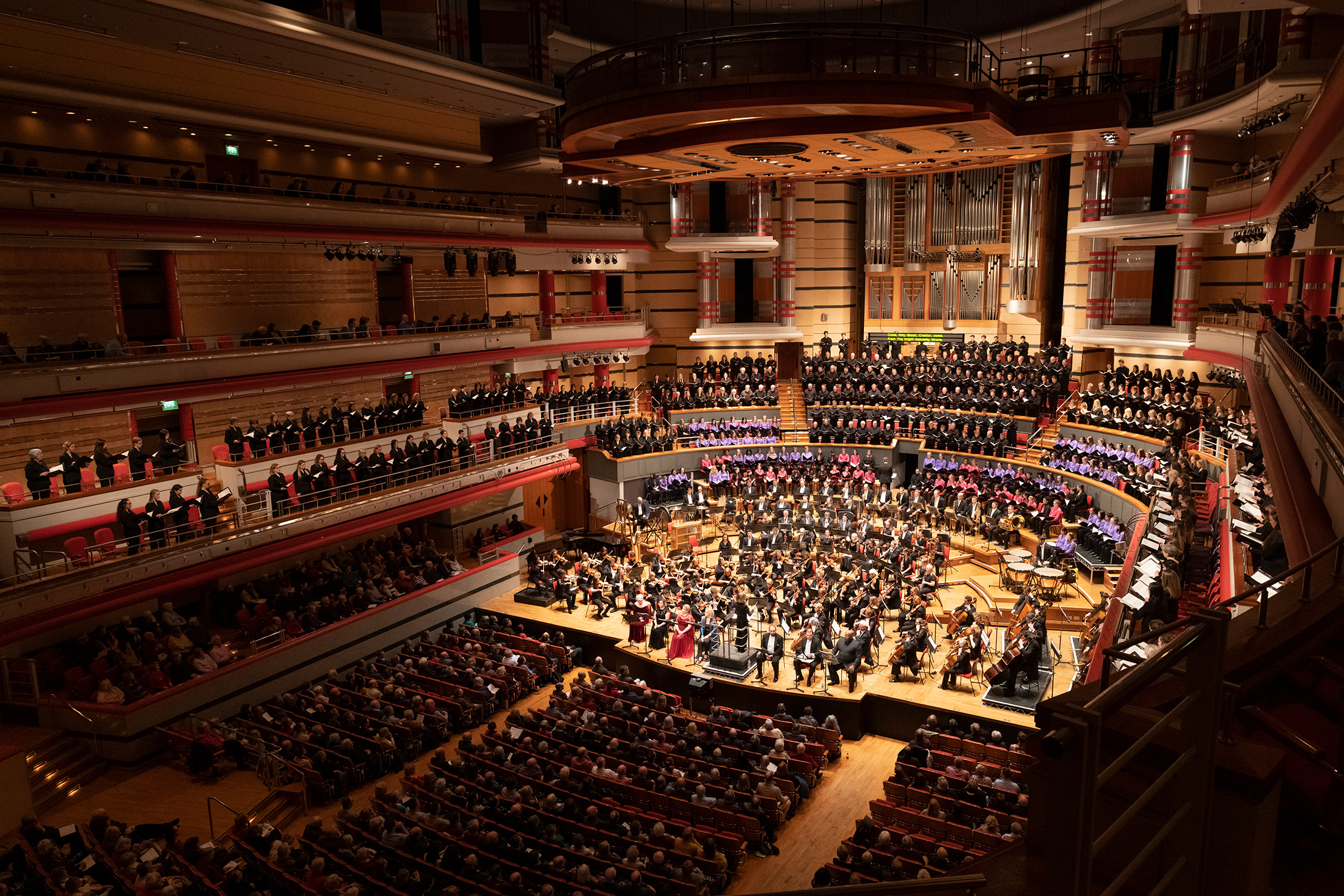A narrated concert featuring the music of Ethel Smyth, Rebecca Clarke, Doreen Carwithen and Dorothy Howell will also appear at Summer at Snape, and at the Barbican later this year.
Harrogate. July. All blackened bricks, bunting and queues for a table at Betty’s Café Tea Rooms.
Proceedings underway just a few days ago, the Harrogate International Festival has already seen Chineke! at the Royal Hall, plus a programme of Bach from Julian and Jiaxin Lloyd-Webber. Later in the month-long series of concerts, audiences get to hear Messiaen’s Quartet for the End of Time, Schoenberg’s Verklarte Nacht, plus hugely popular authors including Ann Cleves, Lisa Jewell and Val McDermid talk about their work.
The Festival programme needs a bit of design schzuzz truth be told, but what’s telling is how they’re bold in billing composer and works, rather than artists in the pre-publicity booklet. That makes the attendance at the Prof Leah Broad Quartet book promo all the more remarkable. A concert featuring music by women composers we’ve not heard of – Ethel Smyth (1858-1944), Rebecca Clarke (1886-1979), Doreen Carwithen (1922-2003) and Dorothy Howell (1898-1982) – how is that going to sell? Well, it seems.
I’ve already bought the book and have made a start. It seemed only right. No one would turn up to a tutorial without having read something of the book, would they? I haven’t got far. But I’m more motivated now.
Broad’s book Quartet published by Faber and Faber has benefited from quite a remarkably high level of good exposure. The cover is distinctive, its advocates speak warmly about it on social media. Everyone I know either has a copy and is reading it or has it on their pile to get started on.
I’m most interested in Cartwithen’s story. The film composer who fell in love with her college tutor, changed her name to her husbands – Alwyn – seemingly allowing her to be subsumed by his greater reputation. Soon after I left Aldeburgh in ’97 it was a friend and colleague from there who left soon after, taking up an opportunity to work with Dorothy towards the end of her life.
Where is Broad’s book pitched? My assumption was that it would be more required reading than serendipitous discovery.
I was wrong. There is huge amounts of detail and, in the run of concert promos Broad, BBC award-winning Fenella Humphreys and pianist Nicola Eimer are staging at Snape in August, Barbican in November and here in Harrogate today, there’s an infectious enthusiasm that eats away at the worthy virtue-signalling some other recently published authors have found it difficult to resist indulging in.
But it’s not all about the book.
It should be no surprise that the music that Fenella Humphreys and Leah Broad have selected for the concerts does each of the four composers featured proud. This is the music that might have been given more prominence had it not been for modernism and men.
Everything sparkles in this carefully curated programme in such a way that you’ll leave the event wanting to hear and read more. Truth be told, I wanted to hear Ethel Smyth’s Violin Sonata in full largely because all of the composers featured demonstrated such efficiency in their short-form writing as to make hearing fuller works in their entirety tantalising. Particularly touching was Rebecca Clarke’s Midsummer Moon, an evocative portrait complete with atmospheric ripples in the piano and a steely violin solo sprawling on top.
If there was one composer that stood out however, it was Dorothy Howell. Musically concise – the one movement piece The Moorings is a charming portrait that makes the jaw drop to the floor – its suggested that Howell’s ‘niceness’ (ie her lack of assertiveness) may have played some part in stopping her from gaining more deserved attention. Severe self-doubt followed, with Howell later trying to burn the works she had created. Yet, it was the resolute action of her nephew and niece saving their aunt’s music from the incinerator, that makes Dorothy Howell a name the easiest to remember perhaps. We hear her music today not because it’s been catalogued, but because it’s been salvaged. Deft deflection on the part of the siblings. There is it now seems another path to recognition.
Fenella Humphreys and pianist Nicola Eimer play a key role in helping the audience make their own minds up about this unfamiliar selection of English romanticism, both creating magical moments where time seemed to almost stand still.
It was Prof Leah Broad who brought the stories alive, bringing passion and enthusiasm to her subject matter without the usual knowing pretension other commentators drag to the table. In this way, Broad is effortlessly likeable. A sincere advocate who might just be what the classical music industry didn’t realise it needed most right now. Get her on TV quickly.
Prof Leah Broad introduces music by composers Ethel Smyth, Rebecca Clarke, Doreen Carwithen and Dorothy Howell, performed by violinist Fenella Humphreys, pianist Nicola Eimer at Harrogate, Summer at Snape, and at the Barbican in November.



